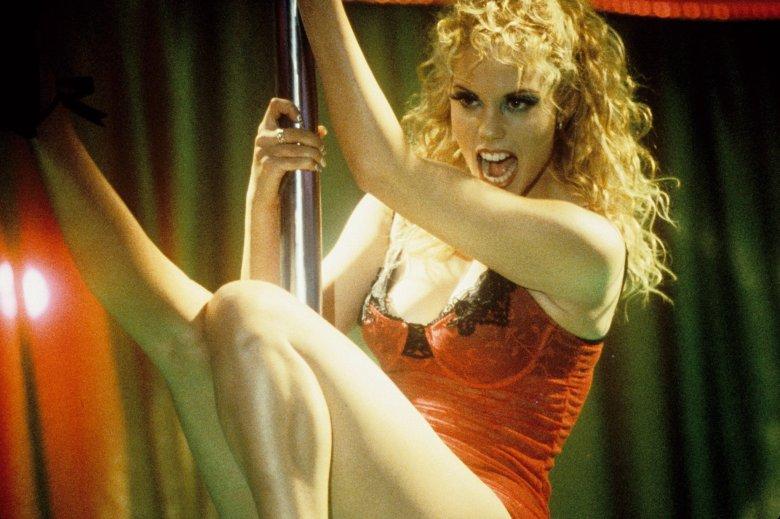
Bad films are a dime a dozen, but it takes a really special kind of bad film to become a cult classic. That’s the premise of Jeffrey McHale’s You Don’t Nomi, which looks at this phenomenon through the lens of one particular so-bad-it’s-good film, Showgirls.
It takes almost half of You Don’t Nomi’s running time before someone utters the word camp, but that’s what Showgirls is—and that’s camp in the Susan Sontag sense of the word: something that takes itself so seriously, it has no idea how ridiculous it is. And make no mistake, despite some recent revisionist history, director Paul Verhoeven, writer Joe Eszerhas, and the entire cast and crew of Showgirls thought they were making an important film, a serious exploration of decadence and sexual agency and power.
The film is “a type of comedy I don’t think you can make on purpose,” explains David Schmader, who hosts regular Rocky Horror-style screenings of Showgirls in Seattle.
You Don’t Nomi examines the film mostly through film clips (both of Showgirls and other Verhoeven films, including Robocop and Starship Troopers) and the voiceovers of film critics, film historians, and assorted ironic admirers of the film, like Schmader. (As a film critic myself, I was slightly dismayed that we only hear their voices and never see them. Justice for the critics! They have faces, too!)
Most of the critics agree that the film is bad, albeit fascinatingly so. But one critic, Adam Nayman, actually argues that the film is good. (Indeed, he has written an entire book on the subject, the aptly titled, It Doesn’t Suck: Showgirls.) He points out that Showgirls has some striking imagery and moments of arresting beauty. This is true—and indeed, the tension between the film’s technical mastery and laughable action/dialogue is undoubtedly part of its allure.
But most of the talking heads point out how hilariously crazed the film is. Our heroine, Nomi (Elizabeth Berkley), storms through the film in an extreme and inexplicable state of rage, upending tables and pushing people aside as she stomps from one room to the next. For some reason, the question “Where are you from?” particularly incites her. “Different places!” she screams back, more than one time. The film also has unusual obsessions, which I confess I failed to notice the first time I watched it: women’s manicured nails, which is a topic of frequent and often incongruous discussion, and “brown rice and vegetables,” which is meant to represent female oppression by the man, I guess. (Nomi is shown triumphantly chowing down on a giant burger.)
Showgirls is also arguably the least sexy film about sex ever made. This is a common refrain from critics, often because they don’t want to cop to their own desires, but in this case, it’s true. Never has writhing and thrusting been so joyless.
The poet Jeffery Conway places Showgirls in the holy trinity of camp, which also includes Valley of the Dolls and Mommy Dearest. It’s no surprise that all three of these films appeal to gay men in particular, as they are the gatekeepers of camp. And, as Showgirls features a bitchy, jealous diva/villain (played deliciously by Gina Gershon, in the film’s best performance), its camp bona fides were never in question.
Here’s the thing about Showgirls: It has a poignancy about it, that McHale leans into. First and foremost, there’s the poignancy of the filmmakers who thought they were making something great, epic even, when they failed so spectacularly. And then there’s the poignancy of poor Elizabeth Berkley, who had already unintentionally contributed to the camp pantheon in the Saved By the Bell episode where her Jessie Spano gets hooked on caffeine pills and becomes histrionically insane (in the great tradition of sitcoms, she was back to her old self the next episode), and who thought this was going to be her career breakthrough. There’s an underdog quality to the film, after all these years. And when the doc shows Elizabeth Berkley hosting a screening of the film and basking in the adoration of the crowd—finally, after all these years, in on the joke—it feels like a happy ending for Berkley and Showgirls.
You Don’t Nomi will be available starting June 9 on Amazon Prime and other streaming services.
